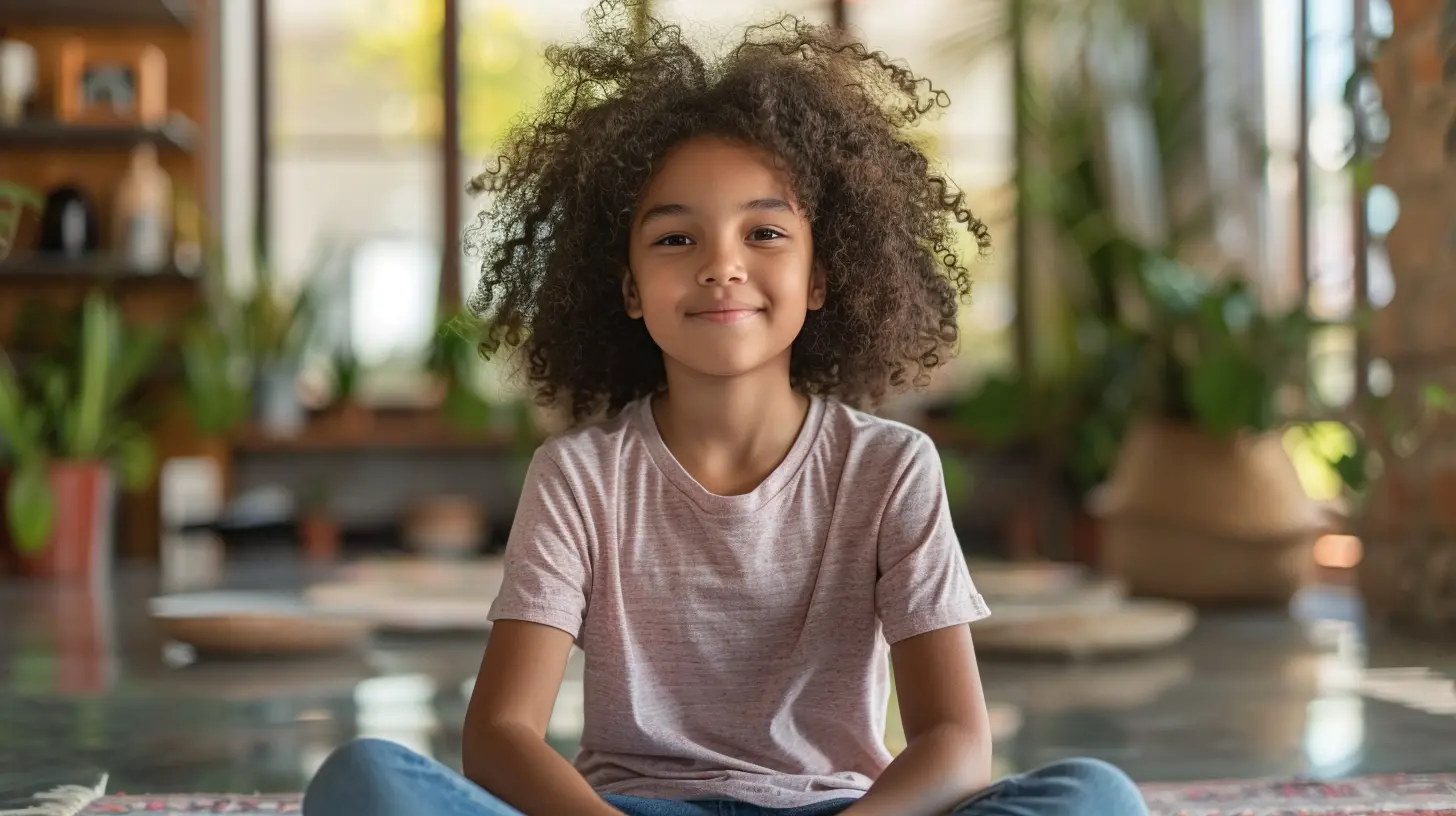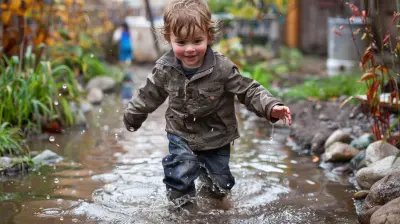Raising Emotionally Intelligent Children with Mindful Tools
9 April 2025
Parenting is one of the most fulfilling yet challenging roles we take on. Sure, we want our kids to succeed academically, but what about their emotional well-being? Emotional intelligence (EQ) plays a massive role in a child's ability to manage stress, build relationships, and navigate life's ups and downs.
So, how do we raise emotionally intelligent kids? The answer lies in mindfulness. By equipping our children with mindful tools, we can help them understand their emotions, communicate effectively, and develop resilience.
Let’s dive into how we can foster emotional intelligence in our little ones using mindful techniques! 
What is Emotional Intelligence?
Emotional intelligence is the ability to recognize, understand, and manage emotions in oneself and others. It consists of five key components:1. Self-awareness – Recognizing one’s emotions and their impact.
2. Self-regulation – Managing emotions appropriately.
3. Motivation – Using emotions to fuel positive actions.
4. Empathy – Understanding and feeling others' emotions.
5. Social skills – Navigating relationships effectively.
Children with strong emotional intelligence tend to be better at problem-solving, have healthier relationships, and are more resilient in the face of challenges. 
Why Mindfulness Matters in Emotional Intelligence
Mindfulness is the practice of being present and fully engaged in the moment without judgment. When children practice mindfulness, they develop greater self-awareness and emotional regulation. Instead of reacting impulsively to emotions, they learn to pause, reflect, and respond thoughtfully.Think of mindfulness as the pause button in a heated moment—it allows kids to take a step back, breathe, and process their emotions before reacting. 
Mindful Tools to Raise Emotionally Intelligent Children
1. Teach Deep Breathing for Emotional Regulation
Ever noticed how a child’s breathing changes when they’re upset? Their breaths become quick and shallow. Teaching kids to take slow, deep breaths can help them regain control of their emotions.Try this simple exercise:
- Ask your child to pretend they’re smelling a flower (inhale through the nose).
- Then, have them blow out a candle (exhale through the mouth).
This teaches them to slow down and self-regulate during stressful moments.
2. Encourage Emotional Labeling
Kids often struggle to express how they feel. Instead of throwing tantrums or shutting down, they need the vocabulary to articulate their emotions.You can help by:
- Naming emotions when they arise: “You seem frustrated because your toy isn't working.”
- Using emotion charts or books to introduce different feelings.
- Playing emotion-naming games to practice identifying feelings in themselves and others.
When kids know how to label their emotions, they become better at managing them.
3. Model Mindful Listening
Children learn by example. If we want them to be emotionally intelligent, we need to practice mindful listening ourselves.Here’s how:
- Give them your full attention – Put down your phone, make eye contact, and genuinely listen.
- Validate their feelings – Instead of dismissing their emotions (“You’re overreacting”), acknowledge them (“I see that you're really upset. That must be hard.”).
- Reflect back – Repeat what they said to show you understand: “So, you’re feeling sad because your friend didn’t invite you. I hear you.”
When kids feel heard and understood, they grow more confident in expressing themselves.
4. Teach the Power of the Pause
One of the best mindfulness tools for kids is learning to pause before reacting.When faced with strong emotions, encourage them to:
- Take a deep breath.
- Count to five before responding.
- Ask themselves, “What am I feeling, and why?”
This simple pause prevents impulsive meltdowns and helps kids make thoughtful choices.
5. Encourage Gratitude Practice
Gratitude shifts perspective from focusing on what’s wrong to appreciating what’s right. A mindful gratitude practice can help kids develop a positive outlook on life.Ways to incorporate gratitude:
- Gratitude journaling – Have them write (or draw) three things they're grateful for daily.
- Bedtime gratitude practice – Ask, “What made you happy today?”
- Gratitude jar – Encourage them to write down things they’re thankful for and place them in a jar to revisit later.
A grateful child tends to be more emotionally resilient and content.
6. Help Kids Recognize Triggers
Just like adults, kids have emotional triggers—things that make them upset, frustrated, or anxious. Identifying these triggers helps them prepare and manage their reactions better.Ways to help them:
- Notice patterns – Does your child get cranky when hungry? Overwhelmed in crowded places?
- Talk about their triggers – “I noticed you get really upset when you lose a game. How does that feel for you?”
- Create a calm-down plan – “When you feel triggered, what can you do? Take deep breaths? Hug a stuffed animal?”
By recognizing their triggers, kids gain better control over their emotional responses.
7. Encourage Perspective-Taking
Empathy is a crucial component of emotional intelligence. Encouraging kids to see things from another person’s perspective helps them build better relationships.You can do this by:
- Asking reflective questions – “How do you think your friend felt when that happened?”
- Role-playing scenarios – Act out situations where they imagine others’ feelings.
- Reading books about emotions – Stories are a great way to introduce empathy-building concepts.
When kids learn to understand others’ emotions, they become more compassionate human beings.
8. Practice Mindful Moments Together
Mindfulness doesn’t have to be complicated. Simple, daily mindful moments help kids develop self-awareness and emotional regulation.Try these activities:
- Mindful walks – Encourage them to notice the sounds, smells, and colors around them.
- Body scans – Guide them to focus on different parts of their body to relax.
- Mindful eating – Teach them to eat slowly, savoring each bite (great for teaching patience, too!).
By practicing mindfulness together, you reinforce emotional intelligence in everyday life. 
The Long-Term Benefits of Emotional Intelligence
When kids grow up with strong emotional intelligence, they benefit in numerous ways:✅ Better problem-solving skills
✅ Stronger friendships and social skills
✅ Higher self-esteem and confidence
✅ Greater resilience during challenges
✅ Reduced stress and anxiety
Emotional intelligence is like a muscle—it gets stronger the more you use it. By consistently integrating mindful tools into daily parenting, you’re setting your child up for long-term emotional success.
Final Thoughts
Raising emotionally intelligent children isn’t about perfection—it’s about progress. Small, mindful actions each day help foster self-awareness, empathy, and resilience in your child.Remember, kids learn by watching us! When we practice mindfulness and model emotional intelligence, they naturally follow our lead.
So, the next time your child is overwhelmed, help them pause, breathe, and process their emotions. It’s not about fixing their feelings—it’s about teaching them how to manage them. And that’s a life skill they'll carry forever.
all images in this post were generated using AI tools
Category:
Mindful ParentingAuthor:

Max Shaffer
Discussion
rate this article
6 comments
Faryn Wagner
Thank you for this insightful article! I appreciate the emphasis on mindfulness as a tool for fostering emotional intelligence in children. It’s refreshing to see practical strategies that help parents nurture their kids’ emotional well-being. Looking forward to trying these techniques at home!
May 21, 2025 at 2:42 PM

Max Shaffer
Thank you for your kind words! I'm glad you found the article helpful and practical. Wishing you all the best in implementing these techniques with your kids!
Riff Long
Mindfulness transforms parenting challenges.
April 30, 2025 at 3:11 AM

Max Shaffer
Absolutely! Mindfulness helps parents respond with patience and empathy, fostering a more connected and emotionally intelligent environment for their children.
Zinnia Hunter
Teaching kids emotional intelligence is like giving them a compass for life’s ups and downs. With mindful tools, we’re not just raising resilient children, but future adults who can navigate relationships and challenges with empathy and awareness. Let’s equip them for the emotional marathon ahead!
April 23, 2025 at 4:55 PM

Max Shaffer
Absolutely! Equipping kids with emotional intelligence is key to helping them thrive in life's challenges and build meaningful connections. Mindful tools lay a strong foundation for their future.
Nolan Rios
This article offers valuable insights on fostering emotional intelligence in children through mindfulness. The practical tools and strategies provided empower parents to nurture empathy, self-awareness, and resilience, ultimately helping kids navigate their emotions effectively and build healthier relationships. Great read!
April 18, 2025 at 3:07 PM

Max Shaffer
Thank you for your kind words! I'm glad you found the insights on mindfulness and emotional intelligence helpful for nurturing children's growth.
Blair McKee
Thank you for this beautiful reminder. Nurturing emotional intelligence in our children is a true gift. Mindful tools empower them to navigate their feelings with confidence and compassion.
April 16, 2025 at 4:16 AM

Max Shaffer
Thank you for your thoughtful comment! I'm glad you found the article inspiring. Nurturing emotional intelligence is indeed a powerful gift for our children.
Cara Gibson
Loved this article! Raising emotionally intelligent kids is so important, and it's great to see practical, mindful tools we can easily incorporate into our daily lives. Excited to try some of these strategies with my little ones! Thank you!
April 10, 2025 at 2:25 AM

Max Shaffer
Thank you so much for your kind words! I'm glad you found the tools helpful and wish you the best in nurturing your little ones' emotional intelligence!




